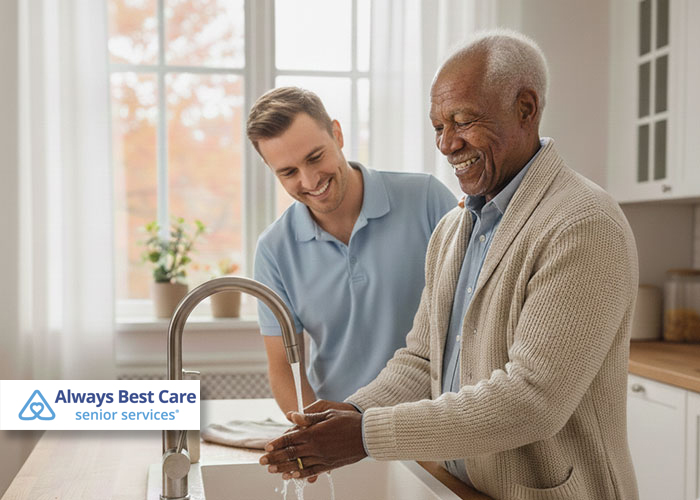Addressing Seniors’ Changing Needs in Aging

Getting older is a fact of life. It is not something that can be stopped or slowed. However, recognizing the changes that occur with aging and adjusting one’s lifestyle accordingly can enhance health and quality of life. Caregivers can help seniors to adapt and adopt positive changes.
Here are just a few of the ways that seniors’ needs may change as they get older.
Changes in Sleep
Seniors should aim for around seven to eight hours of sleep per night. But with aging, hormone levels in the body fluctuate, as does the circadian rhythm, which can throw off sleep cycles. Certain medications can also impact the ability to fall asleep or stay asleep.
Setting a consistent routine for sleep and wake times can help, along with limiting napping during the day. Reducing beverage consumption after dinner can be beneficial as well to prevent frequent bathroom wakeups at night. Make sure the room is cool, dark, and quiet to improve comfort and minimize disruptions.
Changes in Nutritional Needs
There are many factors that can affect seniors’ diet and nutrition. As seniors get older, their metabolism begins to slow down, meaning they require fewer calories per day in order to maintain a healthy weight. Sodium intake should be reduced as well. Focus on incorporating more fresh produce, lean meats, healthy fats, and foods that are higher in protein. Season foods using herbs and spices instead of salt or butter.
If chewing or swallowing becomes an issue due to dental problems or other health conditions, adjust meal plans accordingly. This may mean softer foods that require less effort to chew or are easier to swallow. Cook pasta until it is more tender, and steam vegetables to make them soft. Ensure that seniors are still getting enough vitamins, minerals, and nutrients to support their health.
Changes in Mobility
Bone density can decrease with aging, and muscles lose strength. Arthritis can cause joints to become stiffer. All of this can impact how well seniors get around. Make necessary changes around the house such as clearing walkways, securing rugs and cords, using sturdy furniture, adding grab bars, and ensuring seniors are wearing shoes that fit well and have non-slip soles.
Engaging in regular exercise can also keep muscles strong and improve flexibility and balance. Encourage daily walks, participation in fitness classes at the gym or at home, and doing a variety of cardio and weight-bearing exercises. Find activities they enjoy such as dancing, yoga, tennis, or swimming. Seniors should also make sure they are getting enough calcium and vitamin D to strengthen their bones.
Adapting to Seniors’ Changing Needs
Caregivers should pay attention to signs that aging adults may need more help. Perhaps they’ve been more unsteady on their feet, they haven’t been eating as well, or they seem more tired than usual. Maybe they have trouble doing some of the activities they’ve always enjoyed. It is important to put the right resources and supports in place.
An in-home caregiver can monitor seniors’ abilities and provide the appropriate level of support to enable them to be as independent as possible while still meeting their needs. They can notify loved ones of any concerns or changes that impact the seniors’ safety or quality of life. Together they can form a plan to facilitate aging in place and maintain a healthy, enjoyable lifestyle.
Contact Always Best Care at (855) 470-2273 to schedule a free consultation and learn more about available senior care services. Our team can provide services that are aligned with your aging parent’s individual needs and goals and adjust support as their needs change.





